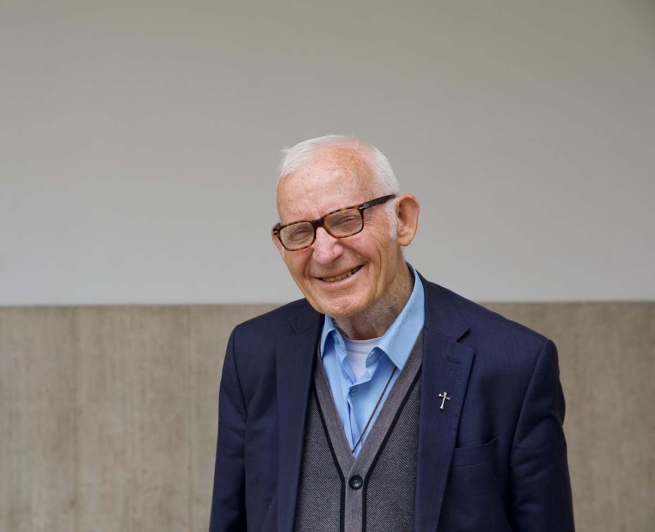Born in 1940 in Rignano Garganico, near San Giovanni Rotondo – the country where St Pio da Pietrelcina, Padre Pio, resided for many years – Fr Gentile was part of a large group of Salesians from that area: 16, including his uncle, Fr Angelo Gentile, despite the fact that there were no Salesian houses in the area.
Formed between Portici, where he did his novitiate – "although still without a true vocational awareness", as he candidly admits – Turin, where he studied Theology – and his vocation fully matured – and Bari, where he obtained a degree in Electronic Engineering, he became a priest in 1981, and served for about a decade in the houses in his own region.
Yet, the second vocation, the missionary one, had begun to manifest itself well before, at the same time, or perhaps even before, the religious and priestly one. "I began to feel the desire to go on mission when I was still an aspirant, because missionaries often passed by telling me about their experience" he testified.
In 1988 it seemed he was destined for Madagascar, but Providence had other plans for him; so, in the end, two more Salesians were found for that destination and once more he did not leave. But it was only a matter of time. In 1991, in fact, with the collapse of the communist and atheist regime in Albania, massive waves of migrants and refugees began to arrive on the coasts of Apulia, up to 15-20 thousand in a single day.
Already a few months before the landings, Fr Gentile had been sent to the "Land of Eagles", on the mandate of the Rector Major of the time, Fr Egidio Viganò, urged by the Vatican and an Albanian priest. His had been an exploratory visit, to learn about the social context of the country. Thus, when the situation in the country manifested all its seriousness, Fr Viganò asked the Provincial of Southern Italy, Fr Luigi Testa, to urgently send some Salesians, and among them there was Fr Gentile. It was July 1991.
"What we found was a total disaster," says the Salesian bluntly. In fact, he had to leave and return after a few weeks with the support of other staff, members of the Salesian "International Volunteering for Development" NGO and thus lay the foundations of the Salesian mission in the country.
It was not easy, but even the unexpected blessings were not lacking such as the spontaneous help received from some young Albanians, who were happy to welcome someone to their homeland to take care of them, and who, thanks to a little Italian learned through television, acted as a bridgehead to establish the first contacts and connections.
The Salesian project from the beginning was clear and well configured: it involved opening two different works, in Scutari, in the north; and in Tirana, the capital. Works that actually soon came into being:
The history of the Salesian mission in Albania, to which Fr Gentile has dedicated his entire life from the 1990s to the present, is firmly intertwined with the complex events that the country experienced since the collapse of the regime. "In March 1997 civil war broke out in Albania, so the Salesians in Tirana were forced to return to Italy. But the work was defended by young animators, who locked themselves in the house with weapons. In 1999, on the other hand, a refugee camp was set up at the Salesian house to welcome the Kosovar population" Fr Gentile says.
"But the foundations of those houses were firm and the structures resisted over time, and – indeed – they spread their charism elsewhere. Today in Albania there are three works: in Tirana, with technical schools, oratory, youth center, parish, and day center for young Roma; in Scutari, with boarding school, parish, oratory and professional courses; and Lushnje, with a parish and oratory.
And the Salesian presence in the Balkans has also expanded with two other houses in Kosovo, Prishtna and Gjilan, still dependent on the Province of Southern Italy (IME) and one in Montenegro, in Podgorica, assigned to the care of the Province of Slovenia.
Fr Gentile, pioneer of this work, at the age of 84 has not yet retired, but continues his mission with zeal, as assistant parish priest at the house in Tirana.



